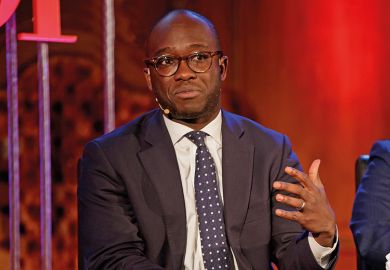Students whose parents are over-involved and controlling report higher levels of worry and poor psychological well-being when starting university, according to a study.
The paper, published in The Journal of Social Psychology, found that students who said their parents were supportive of their autonomy adjusted better to the transition to university and reported less worry.
Students’ anxieties about transitioning to university are linked to long-term psychological problems, and there is a growing need to determine how to improve students’ well-being as early as possible, according to the paper.
The researchers surveyed 355 incoming students at a public university in the US in the summer before their first year, looking at how parents can support or undermine their children’s basic needs. Students were asked to complete measures on “need satisfaction” in their relationship with their parents, parental involvement, worries about university and guilt about academically successful family members.
The researchers sought to test whether anxiety would be lower among students who perceive that their parental relationships meet three basic psychological needs: the need to be in control of your own actions, the need to feel capable and effective, and the need to feel close and connected to others.
The results showed that autonomy had the most significant impact on whether students were concerned about university.
However, students who felt that their parents supported their needs to feel competent and to feel connected to others also showed lower levels of stress about university and less family achievement guilt. “Helicopter parenting” was positively associated with students’ transition worries and also with achievement guilt.
This was true of both first- and continuing-generation students, showing the “universal importance of need satisfaction in the parental relationships as students make the transition to college”, the paper says.
Nathaniel Greene from the University of Missouri, who led the study, said students today “are experiencing poorer psychological health than any other previous generation”.
“Parents, peers and educators should support millennial students’ basic needs for autonomy, competence and relatedness both before and after the transition to college, as they are essential to their overall psychological health,” he said.
Register to continue
Why register?
- Registration is free and only takes a moment
- Once registered, you can read 3 articles a month
- Sign up for our newsletter
Subscribe
Or subscribe for unlimited access to:
- Unlimited access to news, views, insights & reviews
- Digital editions
- Digital access to THE’s university and college rankings analysis
Already registered or a current subscriber?








